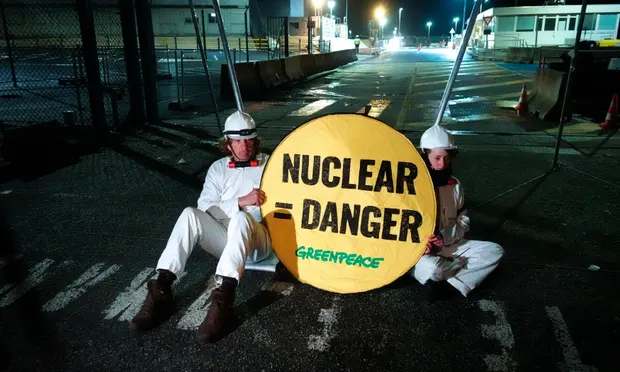Latest reports suggest that the European Commission is being ued by environmental campaigner following its decision to include gas and nuclear in an EU guide to “green” investments.
At least two separate legal challenges are being lodged on Tuesday at the European Union’s general court in Luxembourg – one by Greenpeace and another by a coalition including Client Earth and WWF – after the classification of fuels in the so-called taxonomy, a guide for investors intended to channel billions into green technologies.
The EU executive, argues Greenpeace, acted unlawfully when it designated gas and nuclear as bridge technologies in the taxonomy, which is intended to help meet the bloc’s goal of carbon neutrality by 2050.
Along with three other NGOs, Client Earth is challenging the inclusion of gas, which it says breaks the EU climate law that sets a legally binding target of reaching net zero emissions by the middle of the century. The cases are the latest legal action against the EU’s “taxonomy for environmentally sustainable economic activities”.
Recall that last year a lawsuit was launched by Austria and supported by Luxembourg.
At least eight national and regional Greenpeace organisations including France, Germany and EU office in Brussels are asking the court to rule the inclusion of gas and nuclear invalid.
Read also: Environment minister calls for speedy implementation of Climate Promises Initiative
In his reaction, Nina Treu, the executive director of Greenpeace Germany, said, “The taxonomy was meant to be a tool to meet the 1.5C target [on global heating] and make the European Union climate neutral, fostering social and economic restructuring for the European economy by shifting funds. Instead of hindering greenwashing, it has become a tool for greenwashing.”
Continuing, Treu said that Gas and nuclear had been included because of “politically motivated lobbying and that Greenpeace will tell the court that gas cannot be considered a “transition fuel” because any gas-powered plant that comes online today will still be running beyond 2050.
The environment group is also expected to say that the construction of new nuclear plants – which usually take one to two decades to build in Europe – will delay the move away from coal power, hinder the development of renewables, risk accidents and create pollution.
Greenpeace has hired the lawyer Roda Verheyen, who acted for the group in a landmark case that resulted in Germany’s climate protection laws being ruled inadequate by the country’s constitutional court in 2021.
Story was adapted from the Guardian.
